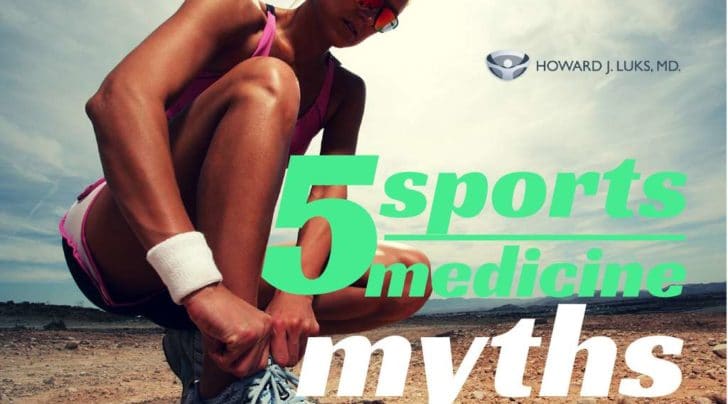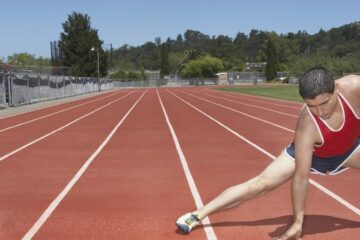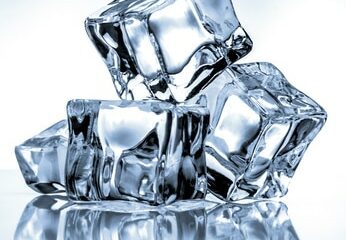
Stretching is good for you … ~Take an anti-inflammatory …. ~Don’t worry, surgery can fix that ….
Are you sure?
Many of us are still using techniques, and methods that we were taught as children in an effort to remain active and injury free. We also try and impart those same knowledgeable tidbits upon our children as they become active. Are they right? Is that what the evidence shows?
We search online … but there is so much noise. And a lot of misinformation.
Common Sports Medicine Myths
- Stretching prevents injuries. Static stretching actually leads to weakness in the muscles you have just stretched. In the hamstring muscles that can be as much as a 20% loss of strength. Counter-intuitive- right? When was the last time you saw a professional runner hold a static stretch? We now focus much more on warming up. Get those muscles moving. Walk around, hit a few tennis balls, perform a few short sprints. DYNAMIC (Nordic Hamstring) stretching, or “eccentric” stretching may help prevent injuries*
- Icing minimizes swelling and stops bleeding. Again, very logical. Since we were infants we have had ice placed on a cut, or tooth to make it feel better. But does ice help prevent swelling and bleeding? The short answer is no. I go into this in more detail here. Ice will shrink small blood vessels, but it also inactivates the platelets which help control the bleeding. It can also damage those small blood vessels further. And once you remove the ice, and the tissue warms, the inflammation returns. your vessels and the platelets aren’t happy, and the bleeding persists. The larger issue is that we now know that inflammation is the first of many steps in the healing cascade. Many cells are releasing chemicals in the region of the injury to recruit other cells to the area. Those new cells will start to repair the damaged tissues. If we interrupt the healing process at its first step, we may not benefit as well as expected from the healing response the body is trying to mount.
- Surgery on your elbow will make you throw harder and faster. Nonsense. Pitchers are borne. They are not created. Medial collateral ligament injuries are increasing exponentially. The loss of seasonality in sports and the addition of strength coaches, pitching coaches, travel team ball and recreational throwing have added significantly to the stress our children are placing on their elbows. Monitor their pitch counts… let them learn the art of the game from another perspective. If you injure your medial collateral ligament, you can very likely play any other position without the need for surgery and without compromising your function. You can live a long and happy life without a medial collateral ligament in your elbow. If you’re 16-18 and you’re not a scouted pitcher, step off the mound, give the ball to someone else, and enjoy the game from another perspective on the diamond. Your elbow will thank you for it.
- Taking anti-inflammatories before exercising will lessen the inflammation and pain. Actually, it won’t. And your body will be far worse off because of the effects of the medicine. When you take an anti-inflammatory, your gut becomes “leaky”… that can promote an increase in inflammation within your body** When you exercise, the body diverts blood from your intestines to feed starving muscles. That leads to a form a leaky gut in and of itself. But it is generally reversed rapidly. Studies have shown (see below) that athletes who have also taken anti=inflammatories before exercising have a more prolonged period of leakiness. Researchers were able to find bacteria and digestive enzymes in their blood during these studies. In addition, as I mentioned earlier, inflammation is the first step in healing process. Anti-inflammatories shut down the chemical cascade that promotes inflammation. There have been a few scientific studies that have demonstrated that routine anti-inflammatory use can inhibit or disrupt the healing process, leading to a weaker healing response, and thus a weaker tendon or muscle. Hmmm. Hold off on the NSAIDs until after you exercise… and then, only if you really need it.
- Your son/daughter is the best on the team. Sit back, enjoy, let them have fun, — and if they’re hurt, let them rest. The team will be just fine without them.
In order for our children, and the #365Warriors among us to remain in the game … you need to have a solid #Gameplan and a set of trustworthy sources of information and providers to turn to help you achieve your goals.
Subscribe to our blog to receive the latest on sports medicine trends, and injuries.
*NY Time article by Gretchen Reynolds on Stretching
* Arnason A, Andersen TE, Holme I, Engebretsen L, Bahr R. Prevention of hamstring strains in elite soccer: an intervention study. Scandinavian Journal of Medicine & Science in Sports 2008;18:40–48
** Aggravation of Exercise-Induced Intestinal Injury by Ibuprofen in Athletes
** Ibuprofen use, endotoxemia, inflammation, and plasma cytokines during ultramarathon competition
*** Anti-inflammatory management for tendon injuries – friends or foes?














Hello Howard:
Thanks for the article.
One of the issues I have always had a hard time with is the stretching before exercising.
Baloney.
Throughout my life, I have seen scores of Track and Field athletes sidelined with “hamstring pulls”, etc.
In a superbly conditioned sprinter, why in tarnation’s name does he pull a hamstring?
Because he “stretched it”, that is why. And kids copy these bozos doing that before an event, etc.
And hockey players, get “groin Pulls”, which, of course, is serious.
And I also say the same; DO NOT STRETCH YOUR GROINS, Hockey Players. Just exercise, use those muscles naturally.
I have skated for about 30 years, playing hockey, and have NEVER pulled a groin muscle.
Why?
Tennis. Best sport in the world for your muscles, so instead of wasthing your time stretching, play tennis, or another sport in the offseason.
Now, let me get down off this horse…..
john bennett md
InternetMedicine.com
Thanks for stopping by John :-)
Howard
I have read and viewed your posted information on tears of the shoulder labrum and I am very appreciative of its clarity and usefulness. I am a healthy 58 y.o. male (204 lbs. 6’4″) who should not have been playing two-on-two driveway basketball with 17 year olds three weeks ago. I slipped on gravel and went down hard enough to garner a concussion, four (nondisplaced) facial fractures, seven stitches in my brow, a damaged sensory nerve in my upper left jaw, and worst of all, I apparently tried to stop my fall with my left hand and suffered a subluxation of the shoulder joint and now, besides pain and popping of the joint with certain movements, I experience very severe pain with any sudden arm movement, especially involuntary raising of the arm as when slipping on my feet or bumping my opposite shoulder on an overhead pipe. The pain is intense enough that I feel faint and queasy and have to sit for a few minutes. Yet I can walk around without a sling and manage most of my service work with small accomodations.
I do commercial refrigeration (ladder and overhead work). I also do a lot of flat water sea kayak paddling and have good shoulder strength. About 12 years ago when I started experiencing debilitating pain from impingement of the superspinatus, my orthopedic surgeon showed me my bilateral acromium “eagle beaks” and he said my choices were surgery or the gym. I went to the gym and it made all the difference until this little basketball game a few weeks ago. I really need to regain function and I don’t think I can do it in the gym. MRI scheduled for Friday.
Thank you for the kind words…. good luck with the MRI on Friday. I hope you get better soon.
Howard Luks